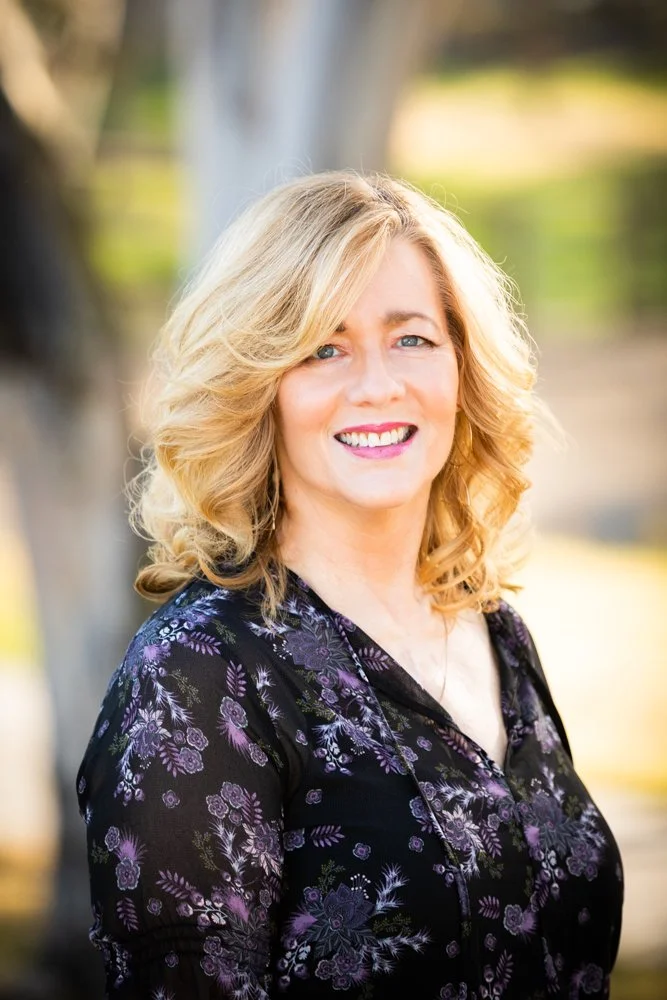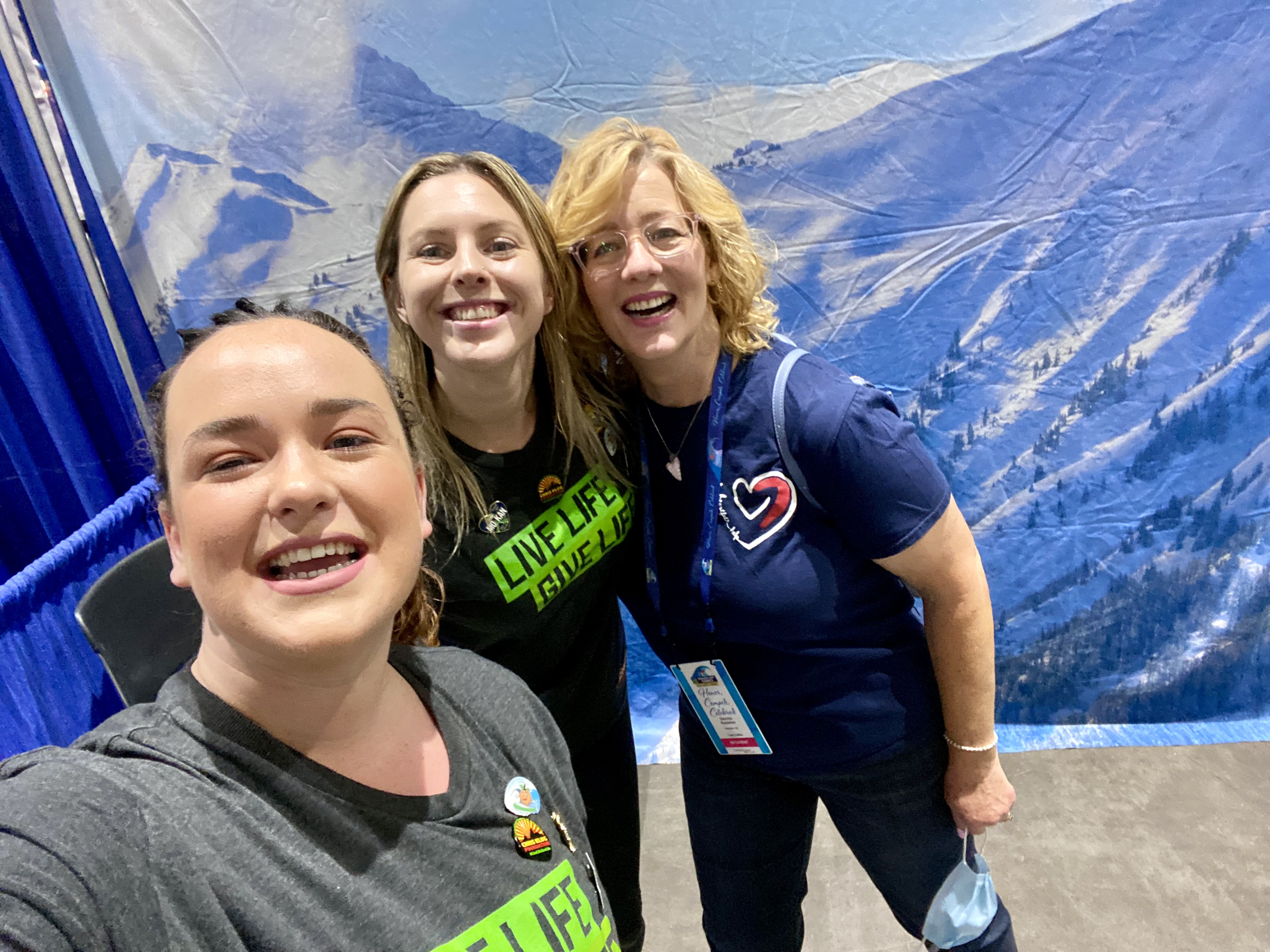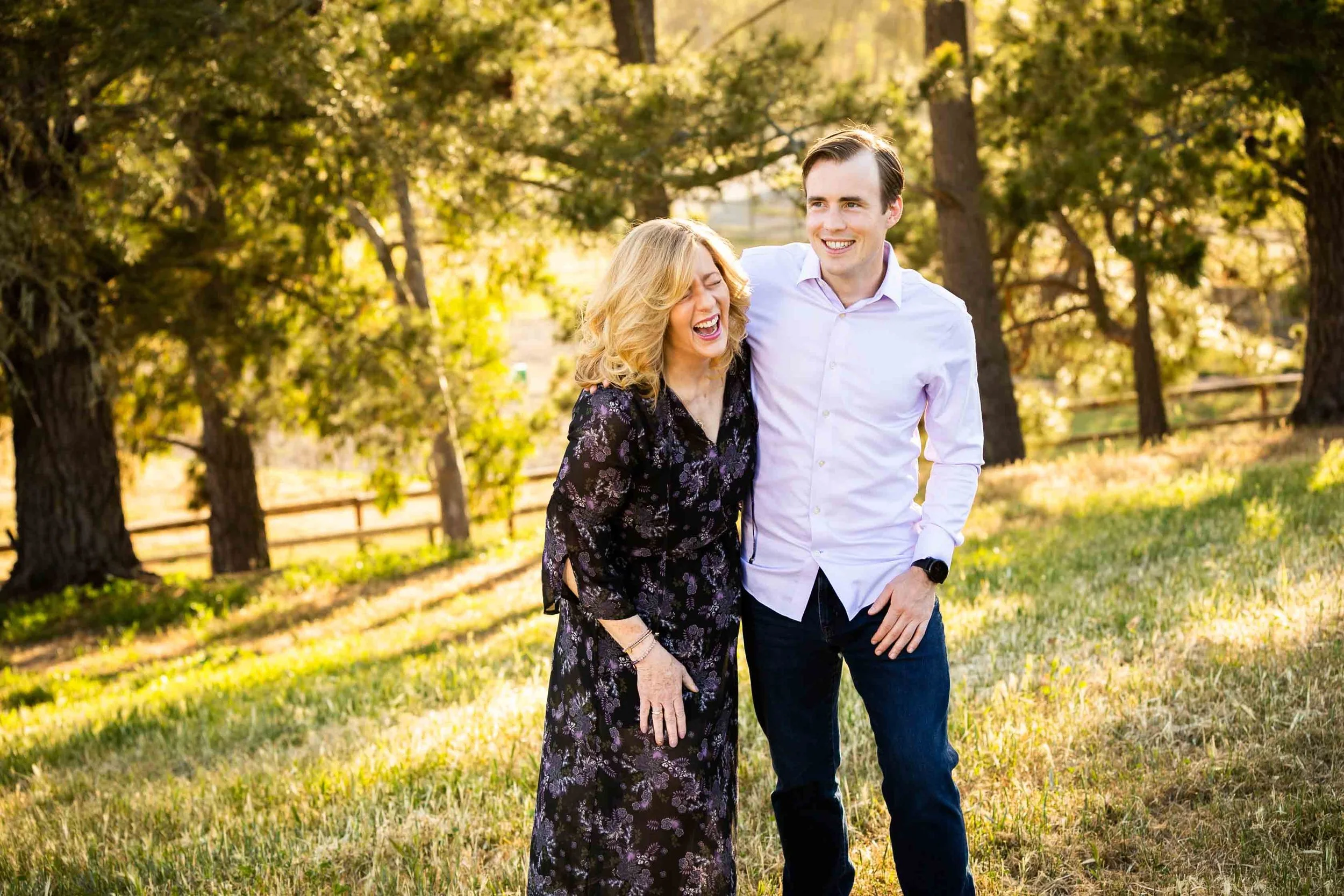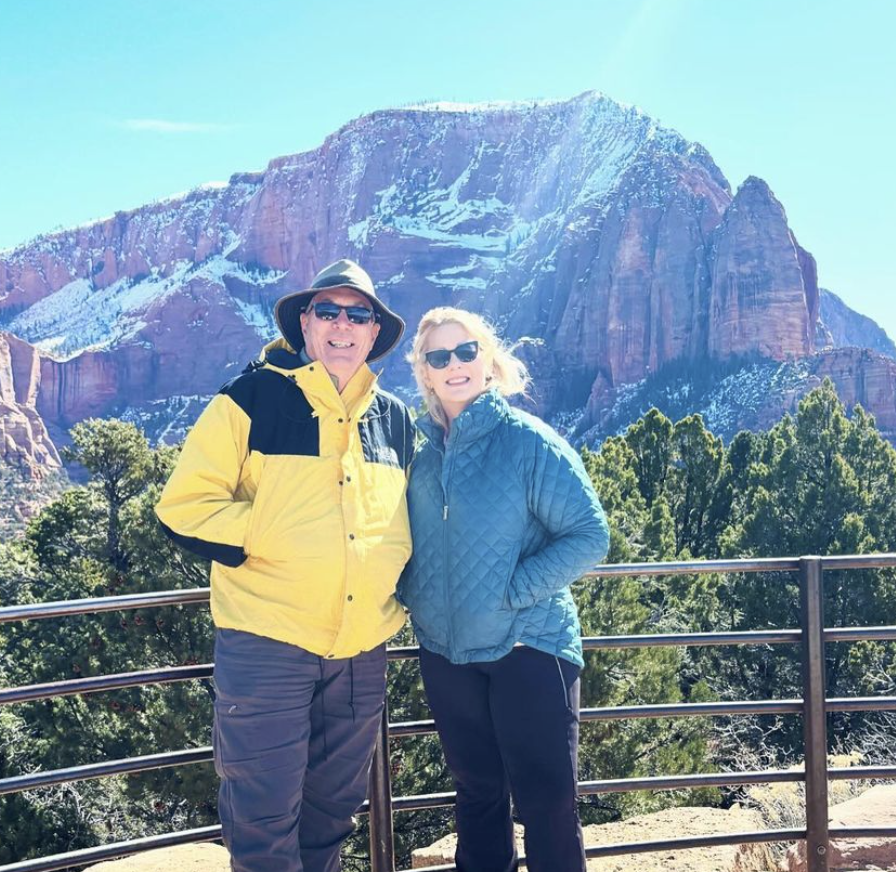The Heart of Hearts
2024 Bounce Back, Give Back Award Winner - Denise Redeker
Denise’s journey began in a hospital room on May 17th, 1992. Allan Redeker held his newborn grandson in his arms as he spoke with his daughter-in-law Denise. Over time, he noticed a slight irregularity in Denise’s heart rhythm, which was monitored by an EKG machine. Allan spotted this as he was an MD and Professor of Medicine at the University of South California. He quickly brought this to the attention of Denise’s doctors, and soon she was diagnosed with Hypertrophic Cardiomyopathy, which became a path of defeats and triumphs for Denise over the next 22 years.
Doctors continually monitored Denise and worked to keep her heart stable. However, around 10 years later, the doctors deemed her heart was too unreliable, and she must have a pacemaker/defibrillator. This monitored her heart and automatically shocked the muscle when it beat too fast, slow, irregular, or stopped altogether. Denise was informed that her condition created the risk of sudden cardiac death, and without her implanted defibrillator, she could die at any second. She came face to face with this fear a few years later when a cable in the device malfunctioned, and she was rushed in for a replacement. On several occasions, Denise felt the device save her life by regulating her heart.
On January 11th, 2018, she suffered another significant VT episode at home and was admitted to her local hospital for evaluation and protection since her implanted defibrillator might not save her yet again. Denise would not return home again until after her lifesaving transplant had been performed. Her evaluations were accepted by Stanford University Hospital in Palo Alto, CA, and she was placed as priority status 1A on the transplant waitlist, meaning she was in critical need of a transplant. Fortunately, other than a fragile heart, Denise was healthy and very average in other ways important for organ matching, including body size, her blood type was widely compatible, and antigen tests showed she would be relatively straightforward to match in the general population. While all of this was great news for Denise and her family and preferable to the 1-2 year lifespan she had been facing previously, they were highly aware that at the time, on average, 10-15% of heart recipients died within the first year, 25-30% within 3-5 years and 40-50% in 10 years.
In 2016, things took a turn for the worse, and she began experiencing small episodes of Ventricular Tachycardia (VT), which is an abnormally fast heartbeat. The gradual decline in her heart’s condition led to the need for her to be placed in the Advanced Heart Failure Program, which left her feeling thankful for the increased support and expertise, but terrified at the idea that she was in heart failure. By mid-2017, Denise’s VT episodes had increased in severity, and she was informed her heart was failing irreparably and uncontrollably. With her heart function now at 15% (normal is 55-70%), the doctors maximized her medications but predicted that they would only be effective for 1-2 years, and eventually her other organs would fail from lack of blood flow. Denise and her family were crushed by the news. A two-year life expectancy at age 50 can only be described as devastating. Denise was unsure whether to rejoice or further recoil when the doctor continued, but she listened as the doctor said you might be a candidate for a heart transplant.
They explained she appeared sick enough to need a transplant but healthy enough to survive the process. He emphasized that her condition was severe and becoming worse by the day. He stressed that her heart might not survive another defibrillator shock. Now, she could die before she hit the floor despite the defibrillator’s shock. Denise left the doctor’s office with a to-do list to help her secure the transplant she so desperately needed. That same day, she began making the calls to set up the many medical, dental, psychological, social, and financial evaluations required to be considered for a transplant.
Prior to receiving the call, Denise felt relatively good as she waited. She walked laps around the ward whenever she was allowed, though she was often uncertain if she had made the right decision. As she read more about post-transplant complications and lifespan, she decided to place her faith in god and her doctors, who had not let her down yet. As it is for many others, Denise was unsure of how long she would have to wait to receive “the call,” but exactly 30 days after being told she needed the transplant, Denise was wheeled into her 12-hour lifesaving surgery. Having received the call on January 29th, 2018, the surgery began on January 30th. The delay was due to the fact that her angel donor was such an extraordinary individual; they were able to save multiple lives through the gift of donation, and therefore, the transplant coordinators had to take the time to find as many matches as possible. Denise was and still is extremely honored that her donor made the decision to save lives and realizes the triumph and tragedy of organ donation. The gift of life to her coincided with another family’s loss of a loved one.
Denise’s surgery went well, but the recovery was tough, and she suffered multiple bouts of internal bleeding, organ rejection, infection, dangerously shallow breathing, wounds that wouldn’t heal, and intense, persistent pain. She was first discharged from Stanford on Valentine’s Day, February 14th, 2018, to recover further in a nearby apartment until she was stable enough to go home. She was readmitted multiple times before being released to home in April 2018, followed by a few more readmissions later that year. Denise’s journey continues with ongoing challenges, limitations, new and improved abilities, satisfactions, joys, fears, sadness, and new friends in the transplant community. It’s amazing what three months in the hospital and $3 million can do!
Since her transplant, Denise has dedicated her life to making a difference for others on the transplant waitlist and recipients by changing access to accommodation during the transplant process. In 2020, she founded the Heartfelt Help Foundation (HHF), a 501(c)(3) nonprofit that works to help heart transplant patients in Northern California pay for medically-required expenses that are not covered by insurance. Denise learned during her recovery that insurance often does not cover or completely cover all the expenses that a transplant requires, and patients are often left struggling to pay high deductibles or copays. For example, one of the biggest expenses a transplant patient may incur is the need for accommodation near the hospital for themselves and their loved ones prior to and post-transplant.
Denise combats this by raising funds to bridge the gap between insurance and medically required housing costs. Since HHF’s inception in 2020, she has raised over $150,000 and helped 30 transplant patients pay for more than 1,100 days of post-transplant housing. Denise works hard to ensure that the accommodation provided to these individuals is clean, safe, individualized, and close to the hospital to ensure they have the best chance of a great recovery. Her work helps ensure all recipients receive equal care, despite their limited or lack of resources. She has the respect and support of her local transplant hospitals in Northern California, who suggest HHF as a credible source to help with uninsured expenses. Denise is also a mentor who helps individuals and their families with emotional concerns through her first-hand experience. Denise and the Heartfelt Help Foundation do not charge any fee for the services they provide, and work around the clock to make a difference.
Denise has achieved recognition for her post-transplant quality of life and community service in several forums, including in local newspapers and television stations. She has received invitations to speak about organ donation and transplant as an ambassador for Donor Network West and in several podcasts, to community groups, to transplant-related medical and pharmaceutical companies, and to high school students and university nursing students. She is always looking to share her journey and the journeys of others in the community.
A healthy and active lifestyle is also at the forefront of Denise’s mind as she works hard to eat right, take her medications exactly as prescribed, and exercise daily. While Denise has had to sacrifice several of her favorite foods and activities, such as sushi, swimming and gardening due to the risk to her heart, she has found passion for new activities such, as kayaking and hiking!
CKF is honored to recognize Denise’s perseverance in making a difference for those in the transplant community and her transplant journey. Denise epitomizes the meaning of our CKF Bounce Back, Give Back Award Winner as she has continued to live her life to the fullest and support and inspire others on the way! We are thrilled to welcome her to the ranks of our CKF Award Winners.






